A comprehensive analysis of Armenia’s legal framework is essential for any foreign investor considering expanding their operations in the country. Positioned at a key economic crossroads, Armenia has adopted regulations favorable to international businesses while also presenting certain legal specificities that require in-depth understanding. SRDB Law Firm, specializing in international business law and Armenian local law, is well-suited to advise foreign companies. Our experts provide precise analysis of legislation directly impacting foreign investments.
This article examines the key legal aspects foreign investors should consider in Armenia, offering a solid foundation for investment decision-making.
Overview of the Armenian legal system
Armenia’s legal system is based on civil law, drawing its foundations from the legal systems of several European countries, notably Germany and France. The country has implemented a wide range of legislative reforms to promote a more transparent environment aligned with international standards, responding to the expectations of investors and international financial institutions.
Judicial structure
Armenia features a hierarchical judicial system comprising courts of first instance, appellate courts, and a Court of Cassation, which serves as the country’s supreme judicial authority (except from the Constitutional Law cases – the supreme judicial authority of which is the Constitutional Court). The Court of Cassation plays a critical role in interpreting laws and ensuring consistency in jurisprudence nationwide.
Commercial legislation
Armenia’s legislative framework governing commercial activities is codified in several key documents, including the Civil Code and the Tax Code. These laws establish the rules for contract formation, corporate governance, intellectual property rights, and commercial transactions. Additionally, the country has well-developed laws addressing bankruptcy and insolvency, providing mechanisms for business restructuring or liquidation in cases of financial difficulty.
Recent legislative reforms
In its ongoing efforts to improve the investment climate, Armenia has recently enacted legislative reforms aimed at simplifying administrative procedures for businesses, reducing regulatory burdens, and enhancing the protection of investors’ rights. These measures include increased transparency in public procedures and anti-corruption initiatives, both essential for attracting and retaining foreign investment.
International compliance
Armenia strives to align with international standards and has ratified several key international conventions, thereby strengthening its integration into the global economy. These commitments ensure that the country’s commercial and legal practices meet global expectations for trade and investment.
This robust and evolving legislative and judicial structure makes Armenia an attractive destination for foreign investments. However, a detailed analysis of local specificities is essential to navigate potential legal challenges and fully capitalize on available opportunities.
Guarantees for the protection of foreign investments in Armenia
Legislative framework
In Armenia, the “Law on Foreign Investments” adopted on July 31, 1994, serves as the cornerstone of foreign investment regulation. This law clearly defines the types and forms of foreign investments permitted, as well as the guarantees and privileges granted to foreign-owned entities, including a minimum foreign participation of 30% in the initial capital.
Armenia has Bilateral International Treaties (BIT agreements – ensuing and protecting foreign investments) with a number of countries, and has been member of the World Trade Organization since 2003.
Open-door policy
The Armenian government has implemented an open-door policy aimed at encouraging foreign investments without requiring prior authorization. This liberal approach is further supported by the establishment of “Enterprise Armenia” a national agency created in December 2019 to promote investments and assist investors throughout the entire investment lifecycle in Armenia.
As part of its efforts to promote foreign investments, Enterprise Armenia achieved notable results in 2023, as highlighted in a recent report presented to Prime Minister Nikol Pashinyan. According to the report, over 410 foreign and Armenian investors engaged with the Center during the year, and 140 investment initiatives were supported, including 60 new initiatives attracted in 2023. The Center also facilitated the launch of 24 new investment projects, with a projected total value of approximately $800 million. Since its inception, Enterprise Armenia has contributed to the realization of 51 investment projects, with a cumulative value exceeding $1.14 billion.
Services and support
Operating as a one-stop-shop, Enterprise Armenia provides a range of services to both foreign and local investors. These include detailed information on investment conditions and opportunities, administrative and legal assistance, and guidance on potential resources for investments. The agency also ensures post-investment follow-up and rapid responses to emerging issues, adhering to international best practices.
Specific legal guarantees
The law guarantees foreign investors non-discriminatory treatment compared to Armenian entities and citizens. It explicitly prohibits the nationalization or confiscation of investments, except in cases of national emergency and with full compensation. Additionally, investors are entitled to operate under the law in effect at the time of their investment for up to five years in case of legislative changes, although this provision may pose challenges due to its potential ambiguity.
Dispute resolution
In the event of disputes, these are typically resolved in Armenian courts or through arbitration if a prior agreement specifies this option. Armenia is a signatory to the New York Convention on the Recognition and Enforcement of Foreign Arbitral Awards and a member of the International Centre for Settlement of Investment Disputes (ICSID). Consequently, international arbitral awards are recognized and enforced in accordance with international treaties.
This framework is designed to protect foreign investments while facilitating their integration and operation in Armenia, ensuring a stable and attractive environment for international investors.
Tax benefits and incentives for investors
Armenia offers an attractive fiscal environment designed to encourage foreign investments. Through various tax incentives and exemptions, investors can benefit from favorable conditions that facilitate the expansion of their activities and the maximization of profitability in the Armenian market.
Overview of tax benefits for foreign enterprises
Foreign investors enjoy a competitive tax system with reduced corporate tax rates and VAT exemptions on certain goods and services. For instance, the corporate tax rate in Armenia is one of the lowest in the region, which serves as a significant incentive for businesses seeking to optimize operational costs.
Additionally, special economic zones (SEZs) have been established to provide even more advantageous conditions, including reductions or total exemptions from certain taxes and social charges for companies operating within these zones. These zones are often strategically located and feature modern infrastructure and logistical facilities.
Examples of government incentives to attract investors
The Armenian government also offers direct subsidies and financial support for specific projects, particularly in fields such as high technology, renewable energy, and tourism. These subsidies can cover a significant portion of the initial investment or operational costs, thereby lowering entry barriers for new market participants.
In addition to financial support, investment support measures include personalized assistance to navigate the regulatory and bureaucratic framework, facilitating the swift implementation of investment projects and reducing administrative delays.
These fiscal and governmental incentives are critical to understanding Armenia’s economic landscape and fully leveraging the opportunities available to foreign investors. They are designed to enhance Armenia’s competitiveness on the global stage and attract investments that contribute to the country’s economic growth and development.
Support provided by SRDB Law Firm to investors in Armenia
SRDB Law Firm, in collaboration with ELL Partnership Law Firm, a member of the SRDB Worldwide Network and SRDB Alliance since April 2024, provides specialized legal assistance to foreign investors in Armenia. This partnership strengthens the firm’s capabilities in key areas such as corporate law, financial transactions, mergers and acquisitions, and taxation.
Specialized business law services
SRDB and ELL Partnership, recognized by institutions such as Legal 500, Chambers and IFLR1000 in 2024, offer integrated legal services covering contract negotiation, tax structuring, and dispute resolution. This strategic alliance enables clients to optimize their investments by leveraging in-depth local expertise combined with an international reach.
This partnership not only ensures the effective protection of business interests but also facilitates secure navigation through the regulatory and commercial complexities of the Armenian market.
Conclusion
In summary, Armenia’s legal framework offers significant opportunities for foreign investors, with robust legal protections, competitive fiscal incentives, and a strong openness to international investments. However, the complexity of certain local regulations and the nuances of their application require in-depth expertise to ensure full compliance and to fully capitalize on the advantages available.
In this context, SRDB Law Firm, in partnership with ELL Partnership Law Firm, stands as a key player in supporting businesses with their legal and administrative processes in Armenia. With a deep understanding of local specificities and internationally recognized expertise, the firms provides investors with strategic and operational support to safeguard their projects and optimize their establishment in the Armenian market.


